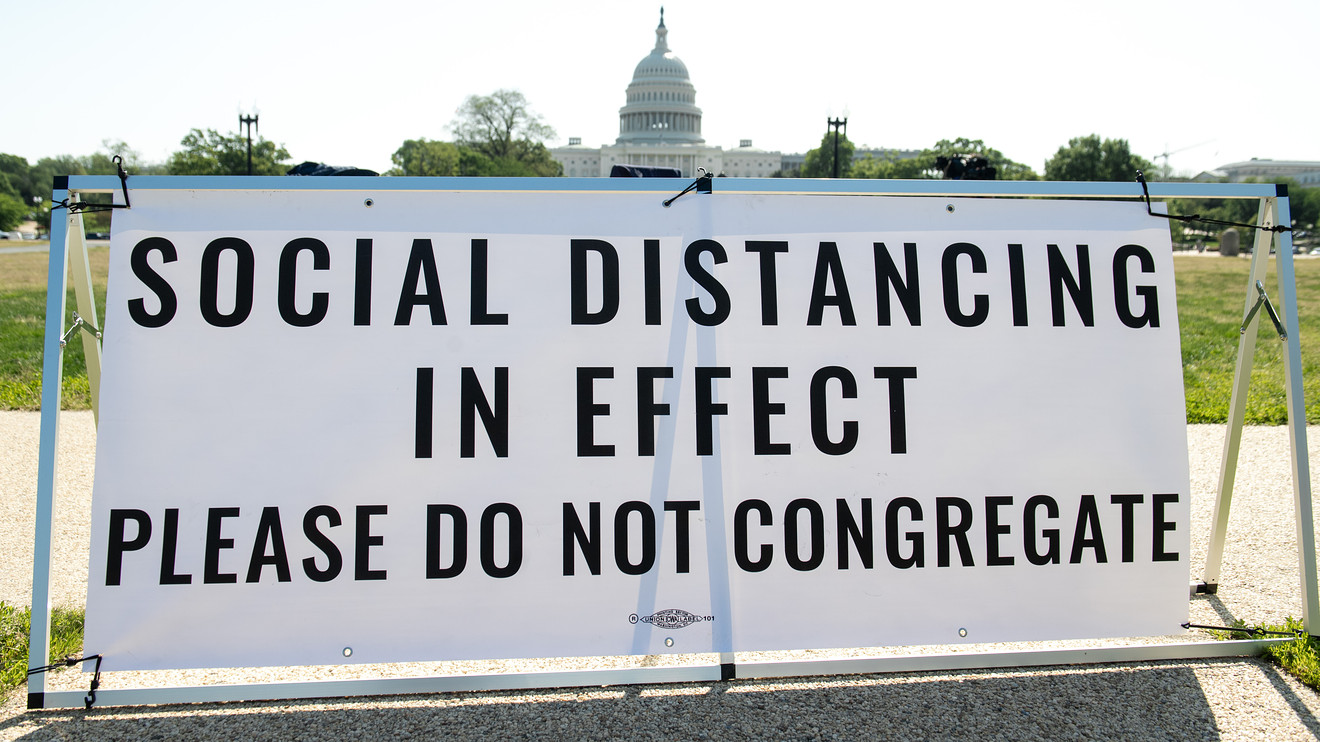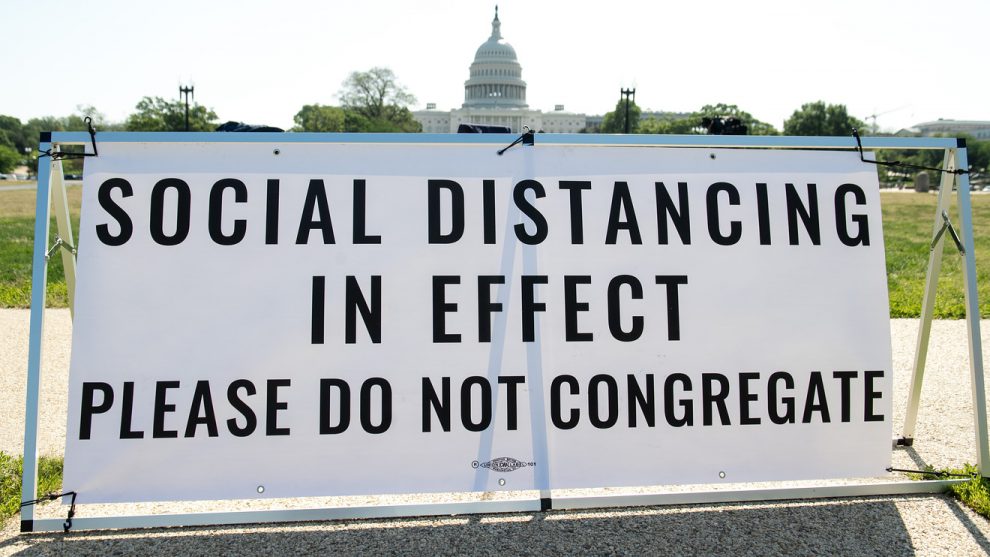
The coronavirus crisis has the potential to nearly destroy the financial certainty of many Americans’ retirements, but swift governmental action could improve that state of security.
As COVID-19 spread across the United States, the federal government passed the CARES Act, legislation which sent millions of Americans as much as $1,200 each and gave a lifeline to small businesses, people on unemployment and industries hit hard by lockdowns and shuttering companies. Record levels of workers have claimed unemployment in the nearly two months since states first started quarantines.
Many Americans were unprepared even before the pandemic began. There was already a looming retirement crisis in the United States — workers did not, or could not, save enough for their futures because of overwhelming student loans, housing payments and credit card debt. Not all employers offered savings vehicles, like 401(k) plans, which have higher maximum contribution limits than individual retirement accounts. People may not have realized how far-off they were from their goals until it was too late, having to retire too soon because of a sickness or layoff.
Half of respondents in the Retirement Risk Readiness Study from Allianz Life Insurance said they retired before they were ready because of factors outside of their control, and that may become the case for countless others because of the coronavirus. Part of the CARES Act expanded access to loans and early withdrawals from savers’ retirement accounts, as some individuals may need to tap into their nest eggs to make ends meet during this crisis.
See: Looking for that stimulus money in your bank account? Check your mailbox
Still, there are ways to help — if only slightly — some Americans get back on their feet, restore their savings or preserve whatever they have for their futures. The Insured Retirement Institute created a five-point plan it thinks the government could use to help draft future legislation aimed toward bolstering retirement security. Financial advisers also weighed in on what Americans need to save. “We know there is still more that needs to be done,” said Paul Richman, chief government and political affairs officer at IRI.
Increase required minimum distributions
The Secure Act, sweeping retirement legislation passed in December 2019, increased the age in which people must begin taking minimum distributions of their retirement accounts from 70 ½ years old to 72, but IRI says that number should be higher — at least 75. Allowing Americans to keep money in their accounts longer lets people closer to retirement preserve whatever they have, and lets investments rebound after the market volatility evaporated savings.
Maryland Sen. Ben Cardin said more could be done in a follow-up stimulus package in regards to required minimum distributions, ThinkAdvisor reported. “It’s something we should take a look at,” he said at the end of April.
Expand contribution limits
Workers with a 401(k) plan can save at least $19,500 a year in those plans, and $6,500 more if they are 50 years or older, in 2020. Comparatively, individual retirement account holders can contribute $6,000 with an additional $1,000 catch-up provision this year. “This arbitrary contribution limit prevents those whose employers do not offer a retirement plan from saving adequately to meet their future needs,” said Howard Pressman, partner at EBW Financial Planning.
IRI also thinks there should be more done for catch-up contributions. Proposals have already been made to add catch-up provisions for some workers, such as family caregivers who had to leave the workforce early to care for loved ones. IRI suggests having some sort of provision that allows people to make up lost savings for the time they were out of work because they were economically or physically impacted by the pandemic.
Don’t miss:Planning for retirement and stressed out? Here’s a silver lining
Ease access to insurance products
There are insurance products focused on longevity, but legal restrictions in place to limit how much of their nest egg people can use to purchase those products. In its proposal, IRI suggested: allowing more than 25% of any retirement account balance to be rolled over into a qualifying longevity annuity contract known as a QLAC; increasing the dollar limitation to $200,000 each year; and creating a short free look period of 90 days. “It’s a good vehicle, but not where it needs to be,” Richman said. Having these proposed rules in place could expand access to pension-like monthly benefits in retirement. QLACs offer guaranteed income payments to people as late as 85 years old, compared with qualified retirement plan’s RMD limits, which is currently at 72 years old. “It’s helping spread out their retirement savings to reduce the risk of outliving their savings,” Richman said.
Offer more account choices
People need emergency savings accounts so that they don’t tap into their retirement money, said Kenneth Nuttall, chief investment officer at BlackDiamond Wealth — and the government could help with that. “If people were given an incentive (like a 401(k)) to have emergency savings and the ease to do that from their paychecks (again like a 401(k)), this will mean people would not dive in to their 401(k) and endanger their future retirements,” he said.
Workers at 501(c)(3) organizations, such as nonprofit, public educational institutions and religious institutions, also need more choices, IRI said in its proposal. Small businesses were given better access to multiple employer plans and pooled employer plans under the Secure Act, and these organizations could use the same. “The COVID-19 pandemic has hurt nonprofits through decreased revenues and exacerbated the already challenging financial, legal and administration environment for many of them to establish an employee retirement plan,” IRI said.
IRI also said there needed to be clarity about the incentives the government offered small businesses, which have been especially affected by COVID-19. The government offered tax credits to those that created a retirement savings plan under the Secure Act, such as those that offered a plan through a multiple employer plan, but there are unclear restrictions as to when the credit applies and how.
Also see:Older workers have been clobbered by the coronavirus unemployment crisis
Strengthen financial literacy
Americans would be better off with their money if they had a baseline understanding of financial planning concepts, said James Guarino, managing director of the tax practice at Baker Newman Noyes. Basics would include stashing the right amount of money into an emergency savings account, maintaining an effective budget, monitoring cash-flow, understanding appropriate asset allocations for investments and having necessary estate planning documents in place in case of an emergency. “The COVID-19 pandemic came about with such speed and suddenness, those who were unprepared, especially with regard to the above categories, have found themselves financially incapacitated,” he said.
Not everyone is aware of the various retirement savings vehicles available, or feel comfortable with making these money decisions. Financial advisers can assist in creating a sound financial plan, but having an understanding of money concepts — especially in regards to their own money — could help Americans in the long run. “In effect, there is only so much government can do,” Guarino said. “The tools are already there, however people need to be taught to take advantage of them.”











Add Comment